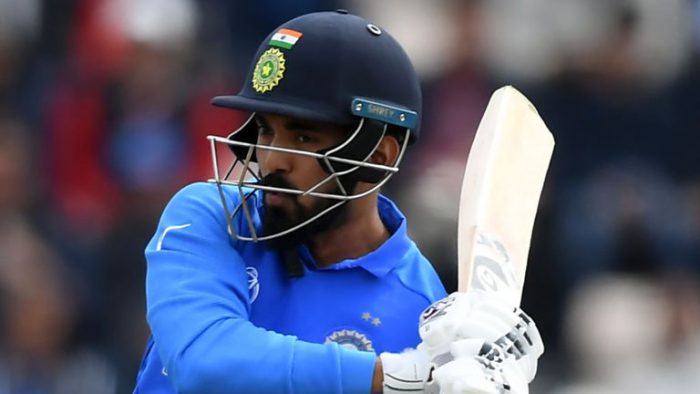
India batting coach Sanjay Bangar challenged KL Rahul to make a crucial contribution to India’s Cricket World Cup campaign as they aim to compensate for the absence of Shikhar Dhawan.
Dhawan, who shares the most successful-ever ODI batting partnership with Rohit Sharma, has suffered a fracture to his left thumb and is set to miss a sizeable section of the group stage.
While Dhawan will be monitored in the team camp for ten or 12 days, Rahul will open the batting for the foreseeable future and Bangar tasked the 27-year-old with adapting quickly.
“As far as the batting order goes, KL moves up at the top of the order,” said Bangar.
“If you look across the history of the game players have been very versatile, and if you take his namesake Rahul Dravid, it helped the team big time.
“If you’re batting in the middle order and suddenly you go and bat in the top order, then you know how challenging it can be.
“You know you need to negotiate two new balls, but you also understand that there are all these boundary opportunities.
“So it’s a mental adjustment, and any player who is able to do that requires a lot of skill, but ultimately it will enhance the position that he will bat in, and it will help the team’s cause big time.”
Rahul is no stranger to opening the batting, but the last time he did so was in January 2017.
The Karnataka product opened up in each of his first six ODIs – against Zimbabwe and England – but was earmarked as the solution at four after a warm-up century against Bangladesh in Cardiff.
India’s approach to the first powerplay since the 2015 World Cup has been conservative, with no side scoring slower than their 3.5 runs per over in the tournament thus far.
Despite Dhawan’s ongoing absence, it seems their approach won’t waver as Bangar encouraged Rahul to continue to show caution, starting against New Zealand at Trent Bridge tomorrow.
“The batsmen have to be a bit circumspect when the conditions are cloudy and there are two new balls,” said Bangar.
“You always want your top bowler to show discipline and put us in a great position because if you’re in a good position at the end of 10 or 15 overs past the new ball, the seam tends to soften up.
“From that point of view, it’s always a good strategy.
“Every opening batsman would like to have that sort of strategy, where if the conditions are challenging, you always want to give the bowlers the respect at times.”


















